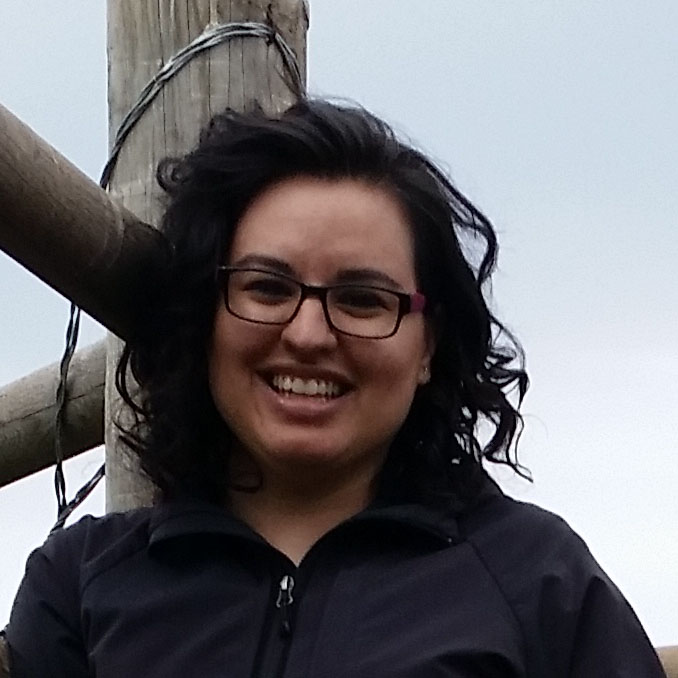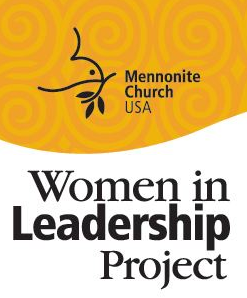 Erica Littlewolf is from the Northern Cheyenne tribe of southeastern Montana and currently lives in Kansas. She works for Mennonite Central Committee Central States with the Indigenous Visioning Circle where she is committed to the work of decolonization, authentic relationship and healing. She has a Bachelor of Science degree in Psychology and American Indian Studies and applies her schooling to social justice issues and how they affect Indigenous people. Erica is a member of the steering committee for the Women in Leadership Project of Mennonite Church USA.
Erica Littlewolf is from the Northern Cheyenne tribe of southeastern Montana and currently lives in Kansas. She works for Mennonite Central Committee Central States with the Indigenous Visioning Circle where she is committed to the work of decolonization, authentic relationship and healing. She has a Bachelor of Science degree in Psychology and American Indian Studies and applies her schooling to social justice issues and how they affect Indigenous people. Erica is a member of the steering committee for the Women in Leadership Project of Mennonite Church USA.
Everything is clear as mud in my head, but when I sit down to write, the words will not come. There are so many words, and yet none of them capture my feelings exactly. That is how I know I am engaged in a spiritual journey.
In October 2014, I was mugged in a Target parking lot.
I did everything right. It was daylight. My mother was with me. And I had my purse clutched under my armpit. When my mother and I stepped outside of double doors exiting Target, I noticed a young man standing immediately outside of the door. I had an odd feeling in my stomach and continued walking into the crowded parking lot with my mother. I had my keys ready to unlock my car quickly and get inside. There was a point, when we were deeper into the parking lot, that I heard the sound of feet scuffing the pavement, a sound that was too close for normal human interaction. I turned slightly to my left and saw him. He grabbed for my purse, and I thought, “Is this happening to me?” He pulled and I pulled, and he pulled more and I pulled more. Eventually I hit him with the heavy Target sacks I had been carrying, full of items such as shampoo, conditioner and lotion. I was trying to stop the interaction.
I remember the moment I could no longer hold on, and my purse straps lost contact with my fingers tips.
I regained my footing and immediately began chasing the man who had my purse. I remember screaming for people to help me. Men came out of Target and out of their cars, and two women pulled up in their vehicles to assist. One woman blocked off the parking lot, so he couldn’t go into a housing area. Another pulled her vehicle ahead of the route she thought he would take. Meanwhile, five men and I chased him through the Target parking lot and into an adjoining lot.
Eventually he had nowhere to go. He stopped and dropped my purse. We all stopped. I looked at him and he apologized. I spoke to him in Cheyenne, proclaiming who I was in my Native tongue.
Police vehicles began to arrive. I couldn’t believe so many had come. At the time I thought, “It isn’t that big of a deal.” I didn’t think it was possible for me to be excited about police coming toward me. But I was. It felt like when I was a kid, and my sister and I would fight. Eventually my parents stepped in. It was a feeling of relief, because their arrival meant it was over. I remember hearing the police yell, “Does anyone have a weapon?” and “Who got mugged?” They wanted to know who the perpetrator was, all while keeping their distance. I felt annoyed. All I could do physically was sit on the ground and catch my breath.
All the witnesses filled out reports, as did I. The police asked if I wanted an ambulance, and I said no, because I was worried about cost and wasn’t sure what they could possibly do for me, anyway. I wasn’t hurt. I actually felt pretty good, considering I had just been mugged. And I watched the man who mugged me get put in the backseat of the cop car. I watched him the entire time. He wouldn’t look at me.
Afterwards, as I told people about what happened, I realized they didn’t know how to react.
People said things like, “How big was your purse?” or “Where were you?” or “What time was it?” or “Who were you with?”
Some people told me that I should have just dropped my purse. One person even asked, “What did you have in your purse that was so valuable?” For me, it never had to do with my purse or what was in it. It was about the violation.
Eventually soreness kicked in, and the anxiety I anticipated creeped up on me. I could no longer stay at my apartment, because somehow I associated my mugging with my house, even though it happened nowhere near my home. I feared that the man would find me and hurt me. I became non-functioning, unable to sleep and too afraid to leave the house. I moved in with my mother to feel safe and began counseling. I was prescribed medication that only seemed to take the edge off. Amidst the healing, I was summoned by the court to testify against my attacker. The summons to appear in grand jury is super formal. They pick the day and time and say that if you are not there, then you can be charged. The letter contained language like allege and allegation that made it feel like I was going to have to plead to be believed. It felt like I was being treated as a criminal instead of being the victim of a crime. The letter threatened to hold me in contempt of court if I did not appear on the specified date. I felt re-victimized. I would later be contacted by a lawyer and a victim’s advocate. Every call added to my anxiety. I wanted it all to go away.
Jordan was found guilty of assault with intent to commit a violent felony and robbery. I agreed to drop another more serious charge, because the state appointed lawyer said it would be harder to prove, and I would have to testify in court. It was his first adult offense, as his juvenile record had disappeared when he turned 18.
I felt guilty. I felt like if it hadn’t been for me, he wouldn’t have an adult record. I felt guilty for having reacted the way I did – for chasing him, for hitting him, for not simply dropping my purse and calling the police. Also was curious. I checked his court record every time the victims advocate would update me on his parole/probation violations. I always wondered what happened to him.
 As I healed, I went through various emotions and turned to family and friends for support. I would eventually find out that the shoulder pain I was experiencing was because he had pulled my shoulder out of socket during the attack, tearing the cartilage. I had surgery, and four pins were placed in my shoulder in order for scar tissue to bind my shoulder back together. I applied for medical support reimbursement from the state and got denied because my crime wasn’t deemed “violent” enough. I eventually moved from the city, needing to find my healing on the land, in wide open spaces and feeling like the city had kicked me out.
As I healed, I went through various emotions and turned to family and friends for support. I would eventually find out that the shoulder pain I was experiencing was because he had pulled my shoulder out of socket during the attack, tearing the cartilage. I had surgery, and four pins were placed in my shoulder in order for scar tissue to bind my shoulder back together. I applied for medical support reimbursement from the state and got denied because my crime wasn’t deemed “violent” enough. I eventually moved from the city, needing to find my healing on the land, in wide open spaces and feeling like the city had kicked me out.
I was attending a conference in June of 2017, when I got a text message from my mother. She said, “Jordan was shot and died.” I immediately called her for details. He and a friend had been shot in a parking lot and both died from their injuries.
I felt safe in a way I hadn’t felt since being mugged. I felt sad that he lost his life at such a young age. I felt cheated out of my process, because I had imagined we would sit and talk through the incident someday. I felt angry that the news was portraying him as an innocent person.
And overwhelmingly, I felt that his physical death did not bring me the feelings I felt I deserved. I wanted to feel resolved, and instead I felt opened back up.
As I continue my healing journey, I find myself cycling through the same questions only differently. I get caught up in thinking about how much the situation would have changed if a weapon would have been involved. I also realize that the cops who showed up didn’t know there wasn’t a weapon, nor did they recognize who the victim was. I scare myself thinking that as a victim, I could have been shot by police based on their account of fear for their lives. I now know that you cannot predict how you will react in such a situation. I felt guilty for the way I reacted (fight), and my mother felt bad for doing nothing (freezing).
There is no correct reaction. I also realize that although I know quite a bit about trauma theory analytically, there was no way to prepare for the psychological, spiritual, emotional and physical response my body had and still experiences.
I often wonder if being a descendant of people who survived the Fort Robinson outbreak and Sand Creek massacre affected how I reacted. Perhaps the most disgusting aspect I have come to recognize from being mugged is that I bought into the commodification of safety. I, an Indigenous woman of color, on some level, believed a false truth, and possessed a false sense of control. I thought that if I followed a set of rules, then my safety could be guaranteed. Spiritually I have grown in a lot of ways, and I keep that to myself. I wrestle with the idea of pacifism and the implementation of pacifism. I intermingle it with race, class and gender and begin to question self-defense. I have no answers, and for this I am thankful.
And as I struggle with “peace” in relation to my reaction to all that has happened, I must be honest. I have kept some of my words and actions out of the retelling of my truth, out of embarrassment or fear of further judgement. Much love to all the survivors and thrivers and the healers and those seeking their own healing. May we be people of compassion and thankfulness. I couldn’t have done it without the help, love and support of those I surround myself with. Walk well dear ones.

